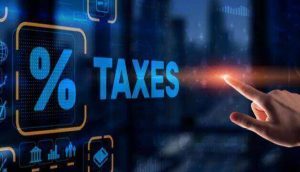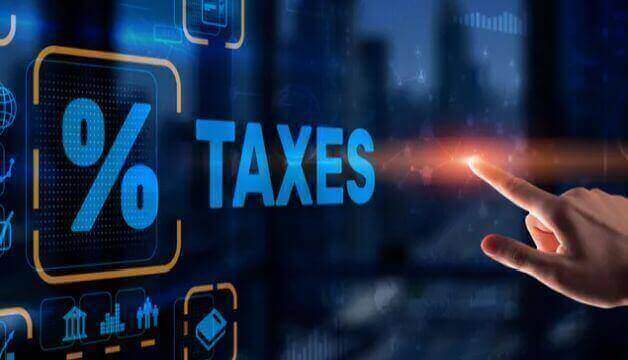Last Updated on: 27th August 2023, 01:14 am
Miftah Ismail Summarized All Measures in The Final Budget 2022 Speech
Finance Minister Miftah Ismail said the “Super Tax” previously announced by Prime Minister Shehbaz Sharif would be levied for a year. He ended the budget 2022 process with a traditional closing speech, in which he addressed the concerns of the parliamentarians.
Speaking to Pakistan’s parliament, he said the 10% super tax was imposed on major industries, including the airline industry, to fill the budget gap. Miftah said most of the recommendations made by Senate and NA lawmakers in previous sessions have been included in the budget 2022-23.
Super Tax In Pakistan Explained
The finance minister has said that companies with revenues over Rs 300 crore will be subject to the tax. 13 sectors were identified. The sectors are:
- Cement
- Steel
- Banking
- Airlines
- Textile
- Automobile assembly
- Sugar mills
- Beverages
- Oil and gas
- Fertilizer
- Cigarettes
- Chemicals
- LNG terminals
In addition, there is a super-tax of 4% for all other sectors.
Minister Ismail later tweeted that a 4% tax will apply to all sectors. However, the identified sectors are subject to an additional tax of 6%, increasing their tax rate from 29% to 39%.
Miftah Collects Taxes On The Affairs Of Prime Minister’s Sons
Regarding taxes, he said the federal govt has not introduced excise taxes or excise taxes that have a disproportionate impact on the poor.
“The rich, elite, and corporations have been taxed to get more capital out of them so we don’t have to beg money from the world,” Miftah said.

He asked the President to give him more credit for imposing more taxes on the businesses of the Prime Minister’s sons. He said companies owned by him and Prime Minister Shehbaz’s sons would also pay additional taxes.
Increased Income Tax For Elite Class
“The income of the rich elite class will help the government meet its budget surplus target, which it has committed to the IMF,” he added.
In addition, Miftah announced a list of taxes to be levied on the elite class and big business. Here is the list of taxes to be collected:
- Additional 1% super tax for individuals or companies earning more than Rs 150 crore
- Additional 2% super tax for individuals or companies earning more than Rs 200 crore
- Additional 3% super tax for individuals or companies earning more than Rs 250 crore
- Additional 4% special tax for individuals or companies earning more than Rs 300 crore
“These additional taxes will only be levied for one year (the fiscal year 2022-23),” he said.
Also Read: IMF Calls On The FBR To Increase Tax Burden On Salaried Class
Income And Sales Tax On Retailers & Jewelers
In his speech, the finance minister also unveiled a new scheme aimed at bringing 250,000 to 300,000 retail outlets into the tax net. He reported that there are around 900,000 retail outlets in the country. Under the new rule, the income and sales taxes applicable to these businesses will be determined by their utility bills. Small businesses are subject to a flat tax of Rs. 3,000 per month and large retailers are subject to a monthly tax of Rs. 10,000/-.
Finance Minister Miftah also added that taxes have also been levied on jewelers, and the tax for on-site shops has been fixed at Rs 40,000 per piece of jewelry.
This is important because there are around 30,000 jewelry stores, of which only 22 are tax registered. The withholding tax on consumer gold sales has been reduced from 4% to 1%. In addition, the minimum tax for oil trading companies (OMC) was reduced from 0.75% to 0.50%.
What Are The Tax Benefits Granted?
After considering the recommendations, the finance minister announced the following tax breaks:
- The withholding tax requirement in companies in the IT industry has been eliminated.
- Companies with a turnover of less than Rs 800 crore are exempt from withholding tax and filing the declaration.
- Abolition of the tax on venture capital funds invested in the IT industry.
- The minimum tax for oil trading companies has been reduced from 0.75% to 0.5%.
- Commission for outgoing penetrators on receipt reduced from 5% to 1%.
- Providing a 50% capital gains tax reduction for those granted parcels while service was restored.
- Families of martyrs and war-wounded are exempt from wealth tax.
- Abolition of sales tax in the leather and surgical instrument industries.
- Overseas Pakistanis who hold a NICOP would be listed as active taxpayers, meaning they would not have to pay additional taxes on property purchases.
Also Read: In Budget 2022-23, New Income Tax Slabs For The Employee Category Were Introduced
Improved Budget Target
Miftah also told Parliament that the budget target originally set at Rs 7,004 trillion has now been raised to Rs 7.47 trillion. At the same time, he added, the non-tax revenue target set at Rs 2 trillion has been lowered to Rs 1.94 trillion.
He announced that the government would give 4.37 billion rupees to the provinces. “After all this spending, the federal government deficit would be Rs. 4.55 trillion and the combined total deficit would be Rs. 3.78 trillion,” the finance minister added.
He recalled that when the former FATA merged with the Khyber Pakhtunkhwa (KP), the tribal areas would have received a tax exemption of “any kind” until 2023.
FM Miftah said the government intends to introduce a bill to exempt residents of those areas from paying income tax as well. However, companies and industries operating in these areas would be placed on the tax net.
The federal budget 2022-23 for the financial year was presented for the first time on June 10 in the National Assembly by the finance minister.
BISP Schemes For Poor People (Sasta Petrol Sasta Diesel)
The finance minister explained that the government was trying to relieve the poor, adding that this is why the prime minister launched a cheap petrol and diesel scheme, which more than four million people have signed up for so far.
He also clarified that these four million people are not those already enrolled in the Benazir Income Support Program (BISP). These individuals received Rs. 2,000/- each, equivalent to Rs. 16,000 million.
“People with household income below Rs 40,000 who are not yet registered in the system can send a message to ‘786’ to claim the facility,” he asked.
The finance minister said Prime Minister Shehbaz, in line with his program to reduce the burden on the poor, has launched a program for the Utility Stores Corporation (USC) to supply wheat, ghee, and sugar at cheaper prices year-round. However, the government plans to set an income target for the settlement that will ensure the benefit is only paid to those who deserve it.
Also Read: Govt Announces to take back budget proposal to raise the sales tax on dairy products



